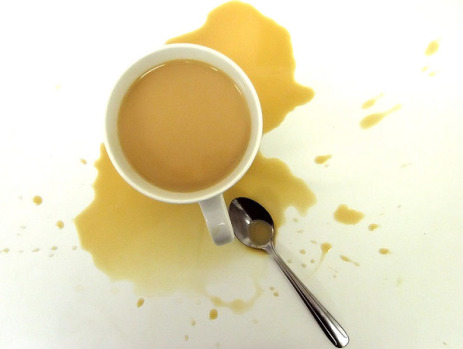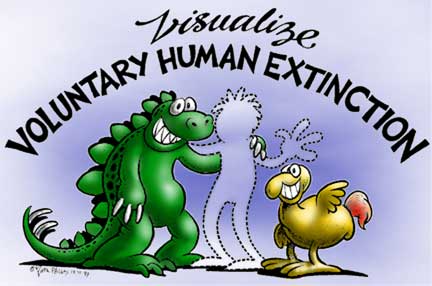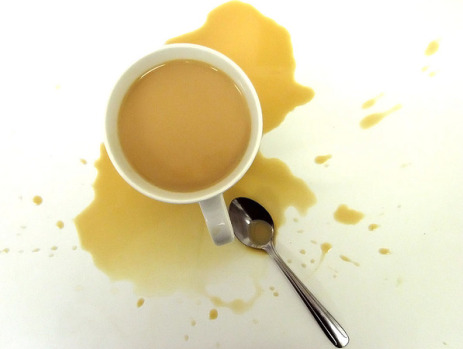Send your question to Umbra!
Q. Dear Umbra,
I think we should stop calling it a spill. A spill is something that you can pick up with a mop and paper towels. Calling this catastrophe in the Gulf a “spill” is like calling the Holocaust a paper cut. It is a blowout. An oil volcano. Oil Ecocide. Or maybe your readers can come up with a more apt phrase. We need to stop minimizing the description with the word “spill”; it is so much more than that. Let’s give it a real apt name!
Tigerlily
 What say you, dear readers? Does the term “spill” downplay what’s happening in the Gulf right now?Photo courtesy Caro Wallis via FlickrA. Dearest Tigerlily,
What say you, dear readers? Does the term “spill” downplay what’s happening in the Gulf right now?Photo courtesy Caro Wallis via FlickrA. Dearest Tigerlily,
The situation in the Gulf has certainly generated a lot of lame naming. Remember Junk Shot and Top Kill, BP’s early attempts at plugging the leak? Even BP itself, now officially Beyond Petroleum, has been re-monikered — Beyond Politics, Black Paste, and Better Prosecute, among others.
Thankfully, for now, after nearly 90 days, the “spill” seems to not be “spilling”. Well, at least not as much as it has been.
But to your question, Tigerlily. You’re right. I’m no etymologist, but using a gentle term like “spill” to describe the ongoing gushing of oil and subsequent long term damage to habitat, wildlife, humans and economies seems wildly inaccurate.
But let’s consult the dictionary: According to Webster’s, the noun spill means “to cause or allow, esp. accidentally or unintentionally to fall, flow, or run out so as to be lost or wasted.” As a verb, to spill is “to flow, run, or fall out, over, or off and become wasted, scattered or spread profusely or beyond bounds.” And apparently it’s archaic usage was to KILL or DESTROY.
Dictionary.com adds a cause to its definition of spill, the verb: “to run or escape from a container, esp. by accident or in careless handling.”
Hmmm. Careless handling, killing, destroying, wasting beyond bounds. Maybe spill is more apt than we thought, Tigerlily. The dictionary definitions do conjure a darker meaning than the commonly used — and more benign — “spilled milk” cliche. But no matter what the dictionary says, how we use language is what matters. So how should we describe this large and disastrous event?
What about spew? Or eruption? A volcano doesn’t spill, it erupts. Then again, Gulf oil eruption sounds a tad awkward, don’t you think?
I’ve noticed several new portmanteaus in the wake of the Gulf disaster — oilpocalypse, oilmageddon, the oil-ocaust, oiltastrophe. But portmanteaus, two distinct words and their meanings blended together, are often meant to be funny, even a bit silly. Just look at “spork.” The portmanteau approach seems too trivial for this Gulf oil “spill.” And given that the leaky pipe has been stoppered, at least for the time being, what will we call the spill’s aftermath?
We could turn to W.S. Merwin, our newly appointed Poet Laureate, for the right words.
Or we could ask you, dear readers. How does “spill” sit with you? Are there other words that better express the gravity of the situation? Please help Tigerlily and me fashion a better handle for this 2010 Gulf oil disaster. (Now that has a ring to it … )
Semantically,
Umbra
P.S. Here’s “In Time” by W.S. Merwin for inspiration:
The night the world was going to end
when we heard those explosions not far away
and the loudspeakers telling us
about the vast fires on the backwater
consuming undisclosed remnants
and warning us over and over
to stay indoors and make no signals
you stood at the open window
the light of one candle back in the room
we put on high boots to be ready
for wherever we might have to go
and we got out the oysters and sat
at the small table feeding them
to each other first with the fork
then from our mouths to each other
until there were none and we stood up
and started to dance without music
slowly we danced around and around
in circles and after a while we hummed
when the world was about to end
all those years all those nights ago



